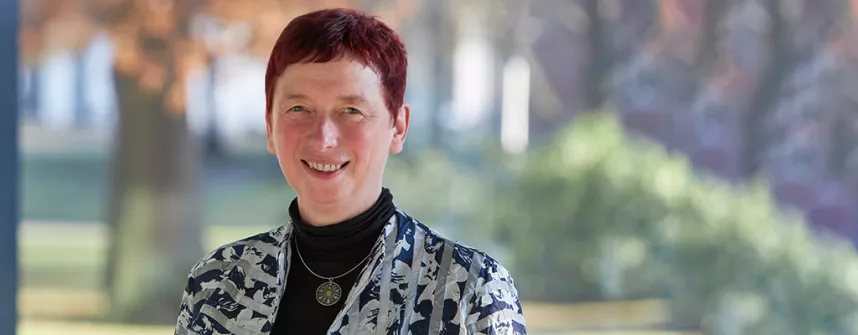HAORI Foundation Bremen supports project on the importance of nerve cell antennae in rare diseases
December 1, 2020
In order to receive, process and filter signals, nerve cells have various extensions. These include cilia, which act as sensors of the environment. In a pilot project at Jacobs University, Klaudia Brix, Professor of Cell Biology, and her team research whether they also serve as entry points for viruses. The project is funded by the Bremen HAORI Foundation, which supports scientific projects in the fields of brain research, neuroscience and rare diseases.
Whether cilia are the primary sites of a viral infection has not yet been well researched. It is known that certain enzymes are important for target cell entry of the coronavirus. Brix' research group is focusing on some of these enzymes, namely cathepsins, and asks whether they are located on nerve cell antennae. Only recently, the research group discovered cathepsin enzymes on antennae of thyroid cells. The basic science pilot project does not involve working with the coronavirus itself.
A second research approach deals with the implementation of the findings in practice. What happens when the cathepsin enzyme is inhibited or, as is the case with certain rare diseases, is missing? Will the antennae then be retracted and no longer serve as a point of incidence? Or does this have serious consequences because the cells are no longer able to do their job? Can the use of inhibitors therefore be harmful? "The results lead us to expect important impulses that will enrich neuroscience from the point of nerve cell biology," said Brix.
"As a young Bremen foundation, it is important for us to contribute to a better understanding of the coronavirus – with the help of an institution in Bremen. Professor Brix' research project meets these criteria and we wish her every success," said Joachim Lorentz on behalf of the HAORI Foundation, which was founded in 2013.
Questions concerning the foundation are answered by:
Joachim Lorentz
Email: info [at] haori-stiftung.de
http://www.haori-stiftung.de
Questions concerning the project are answered by:
Prof. Dr. Klaudia Brix
Professor of Cell Biology
Tel: +49 421 200-3246
Email: k.brix [at] jacobs-university.de
